Sharp drop in liquidity, foreign net selling makes Vietnamese stocks sluggish before US presidential election
On November 4, domestic stocks continued to be in the red, VN-Index lost more than 10 points, close to the 1,240 point mark. Circular 68/2024/TT-BTC was officially applied, allowing foreign institutional investors to buy stocks without requiring sufficient funds, but it could not stop the market from falling.
Brokers lose money, investors are frustrated
Notably, the Vietnamese market is red while major markets in the world from Asia, Europe, and the US are all green. This makes domestic investors even more discouraged, switching to cutting losses on stocks at low prices. As a result, the VN-Index closed at its lowest level since mid-September 2024. Liquidity remains low when the transaction value on the HOSE floor only reached more than 15,800 billion VND.
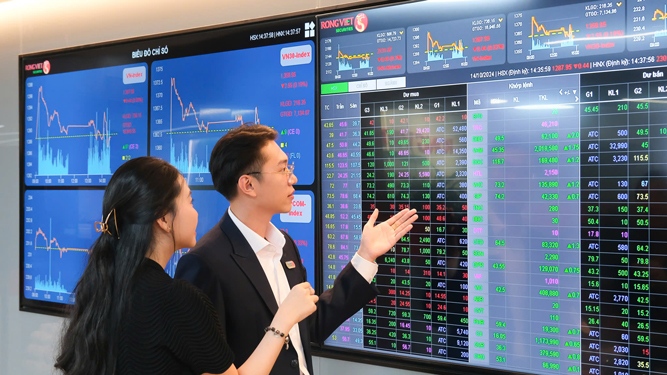
Investors and experts are hopeful for a stock market recovery in the remainder of the year. Photo: LAM GIANG
According to MB Securities Company (MBS), the average liquidity of the entire market has now dropped to a 7-week low of only about VND16,380 billion. If the type of transaction is negotiated, the transaction value is only about VND12,381 billion. The VN-Index has lost its upward trend since the beginning of August at the 1,280 point area and has continued to probe the bottom for many weeks.
Many investors said that the market and stock price developments were not only disappointing but also caused them heavy losses. Mr. Hoai Minh (living in Binh Thanh District, Ho Chi Minh City), who is holding real estate and construction stocks, said that despite the positive business results in the third quarter of 2024 of the company he is investing in, the stock price continued to decline.
"Real estate stocks have fluctuated within a narrow range for the past 8 months, while infrastructure construction stocks have been continuously falling, causing my account to become increasingly negative. At first, I bought to average the price, but for about a month now, I have turned off the app and stopped trading," said Mr. Minh.
Many investors holding other stocks such as securities, steel, oil and gas, etc. are also in a similar situation, "the more they buy, the more they lose" and have accepted to stop watching the board. Ms. Doan Thi Thu Huyen, a consultant at Yuanta Vietnam Securities Company, said that the decline in market liquidity and investors' limited trading have directly affected brokers' income. "Usually, when the market is gloomy, investors are discouraged, and few people open accounts, it is a sign that the market is in the bottoming phase," Ms. Thu Huyen said.
Similarly, Mr. Tran Anh Giau, a broker at Mirae Asset Securities Company, also lamented that his income has recently decreased sharply because investors have stopped trading. "Vietnam's macro economy is positive but the VN-Index has not increased, causing investors to be afraid and discouraged from trading, causing brokerage fees to decrease sharply. Not to mention, many investors are "stuck" and have to bear losses, which also puts pressure on the brokerage team," said Mr. Giau.
New wind from foreign block
Regarding Circular 68/2024/TT-BTC officially applied from November 2, allowing foreign institutional investors to trade and buy stocks without requiring sufficient funds and a roadmap for information disclosure in English, according to reporters, a number of large securities companies have begun implementing trading methods according to new regulations.
Mr. Barry Weisblatt David, Director of Analysis at VNDIRECT Securities Company, said that the company is following the instructions of the Vietnam Securities Depository and Clearing Corporation (VSD) and the directives of Circular 68 to receive customers and deploy services upon request. VNDIRECT works with consulting organizations in large auditing groups to establish counterparty risk assessments for each customer...
"This is an important circular because it demonstrates the Government's commitment to attracting foreign investment capital into the stock market, making Vietnam an attractive investment destination," said Mr. Barry Weisblatt David.
Circular 68 will cause some active fund managers to increase their allocation to Vietnam due to its more cost-effective investment. However, this scope is quite small as it will not affect the allocation from funds such as PYN, Dragon Capital or VinaCapital… as they are 100% invested in Vietnam. The Circular will mainly apply to regional funds or global frontier and emerging market funds with an interest in Vietnam.
From the perspective of foreign investment funds, Ms. Nguyen Hoai Thu, General Director of Securities Investment Division - VinaCapital, said that many securities companies have prepared the transaction process for foreign investors. However, it is necessary to ensure that this process is carried out smoothly in practice, without any problems or impacts on investors' transactions.
Securities companies also need to prepare sufficient capital to finance investors' transactions. "Risk control for securities companies is also very important to avoid foreign investors buying securities but then being unable to pay," said Ms. Hoai Thu.
Regarding the story of Circular 68 contributing to the roadmap for upgrading the Vietnamese stock market, VinaCapital experts said that after having legal regulations and implementation procedures allowing foreign institutional investors to buy securities without having 100% cash corresponding to the order value, FTSE Russell will need to consult with foreign investors investing in the Vietnamese stock market. If there are no obstacles, FTSE Russell can make an official decision on upgrading securities.
According to VNDIRECT experts, the FTSE Russell fund is likely to announce an upgrade to emerging market status in March 2025. This announcement will positively improve market sentiment and individual investor purchasing power. Foreign ETFs that simulate the Vietnamese market may increase their assets under management as foreign investors expect an upgrade to emerging market status, helping to increase stock prices in the first quarter of 2025. Although there are many different estimates, about 500 million USD to less than 1 billion USD of foreign capital will flow into Vietnam, especially businesses that are dominating the FTSE FM index.
Gold and stock talkshow
On the morning of November 5, Nguoi Lao Dong Newspaper organized a talk show with the theme "Gold peaks, stock market sluggish: Where is the opportunity", with the participation of economic and financial experts, analyzing the factors affecting the stock and gold markets at present and upcoming trends.
Has the market bottomed?
Ms. Tran Khanh Hien, Director of Analysis at MBS, commented that although the USD index is fluctuating around 104 points, the State Bank has taken action to pump net money back to support system liquidity in the context of strong credit demand towards the end of the year. Interbank interest rates have decreased, exchange rates have shown signs of cooling down, and VND has appreciated against the USD, along with Circular 68, which are factors that will positively support the market in the coming period.
"The domestic stock market usually has a fairly good growth cycle from November to the end of February of the following year. In the last two years, 2022 and 2023, the VN-Index bottomed out in November and started a strong recovery chain afterwards. The possibility that the US Federal Reserve (FED) will lower interest rates by another 0.25 percentage points in its meeting this November; the domestic disbursement rate of public investment capital and stronger credit growth... will also help stocks benefit," Ms. Khanh Hien analyzed.
Source: https://nld.com.vn/chung-khoan-ky-vong-lan-gio-moi-196241104205959133.htm







![[Photo] Visiting Cu Chi Tunnels - a heroic underground feat](https://vstatic.vietnam.vn/vietnam/resource/IMAGE/2025/4/8/06cb489403514b878768dd7262daba0b)
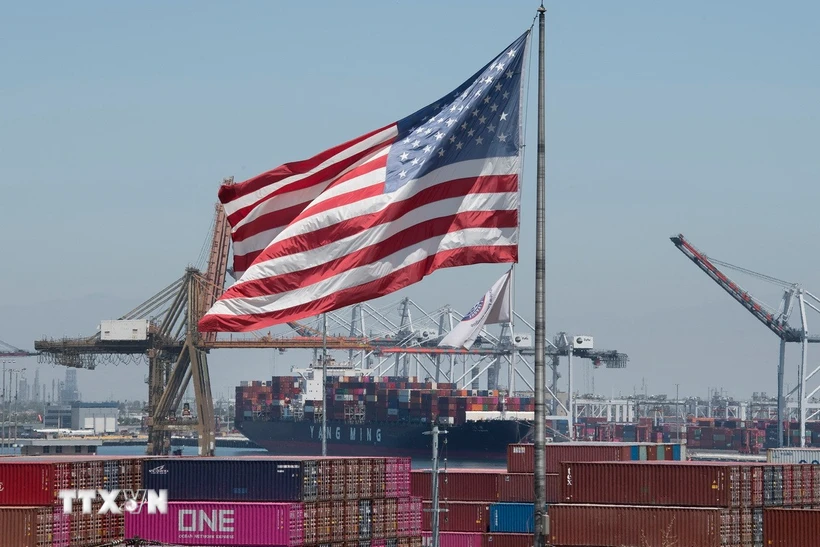



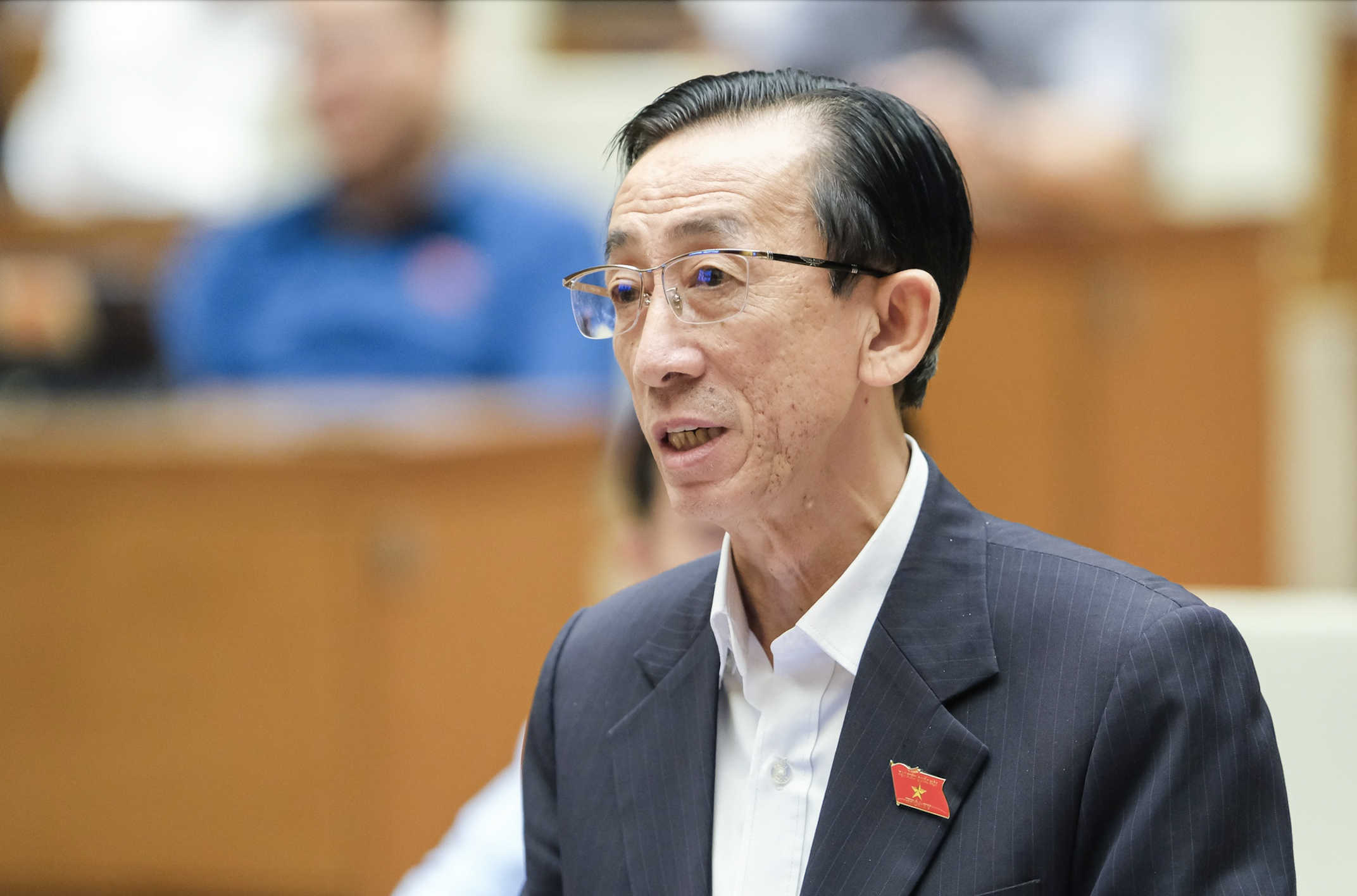


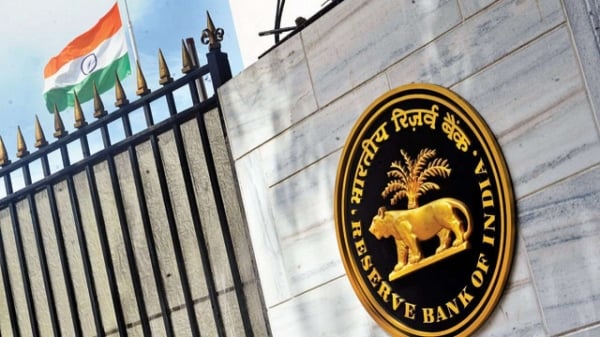

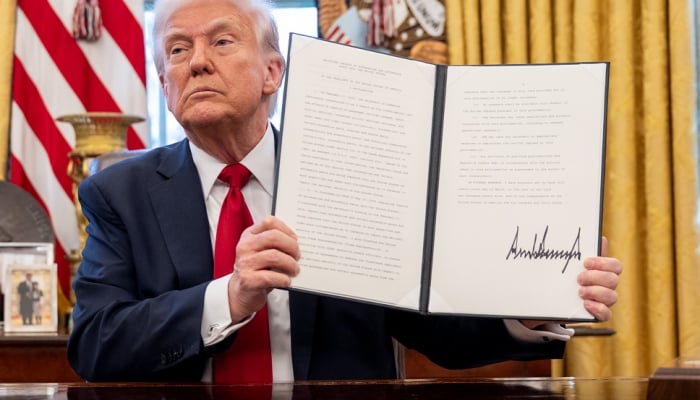


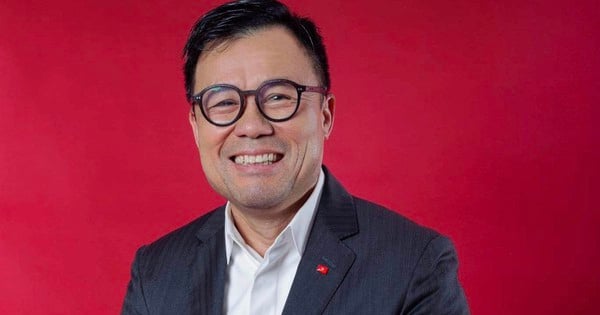

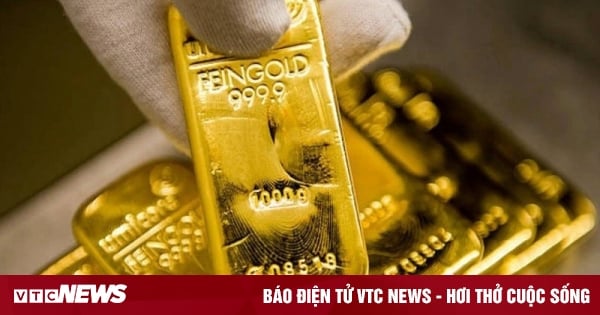
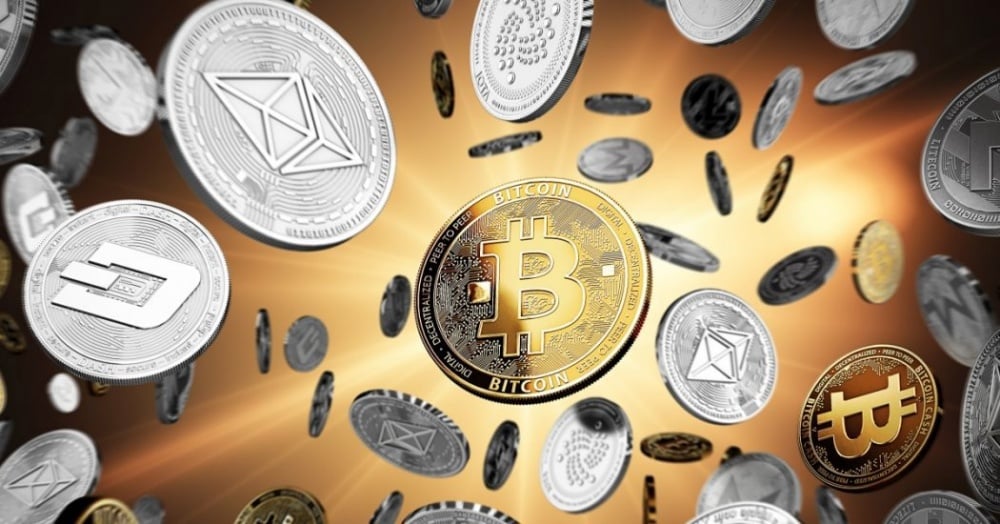





















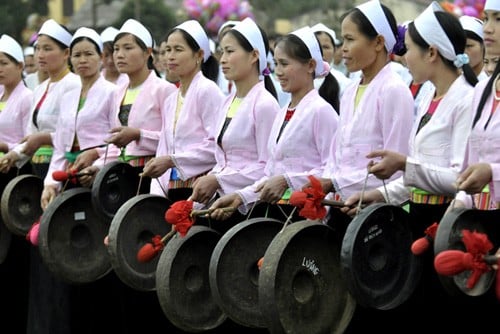






















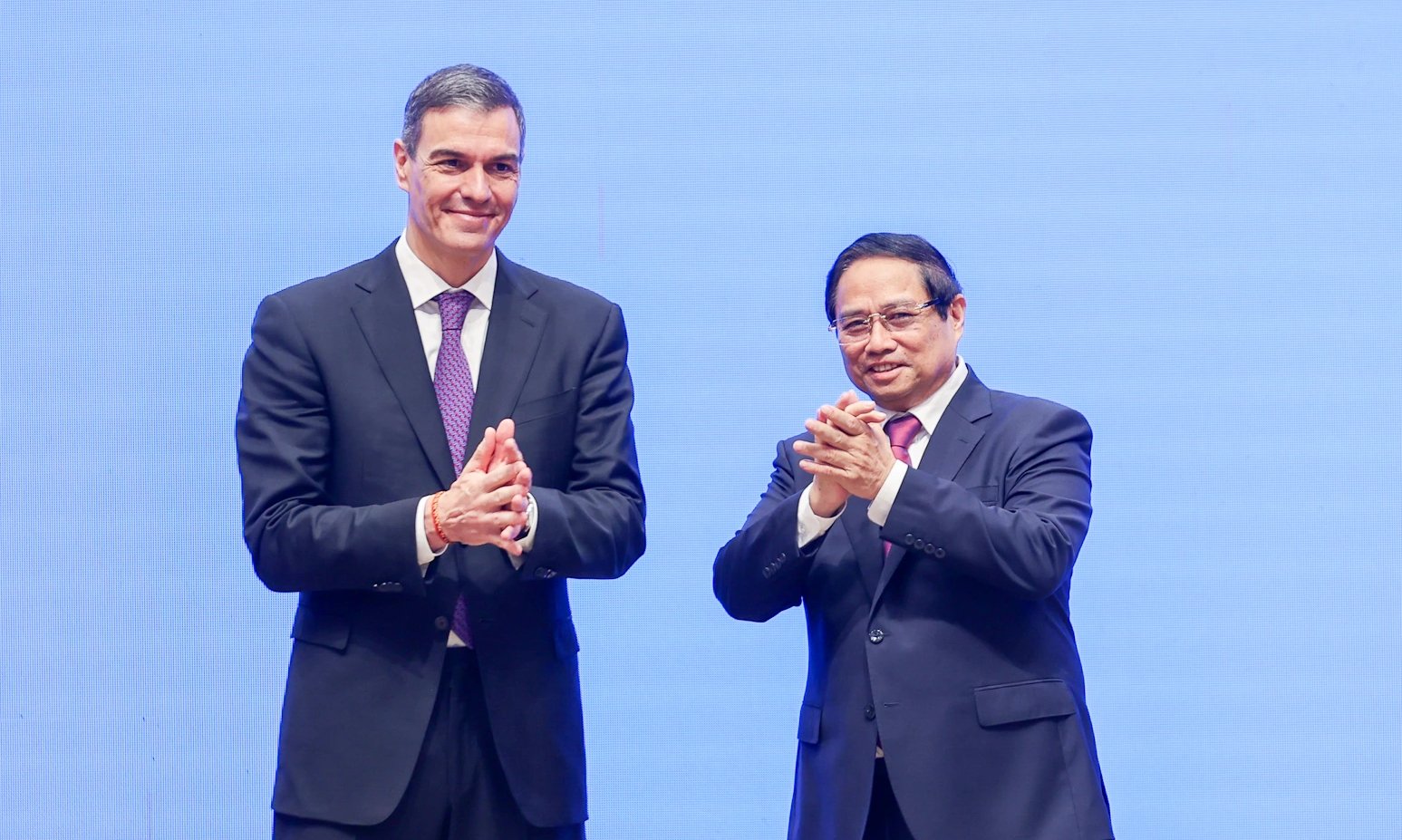


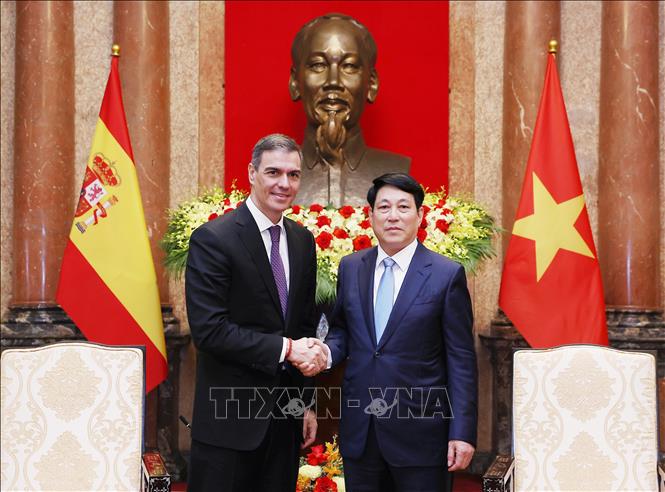









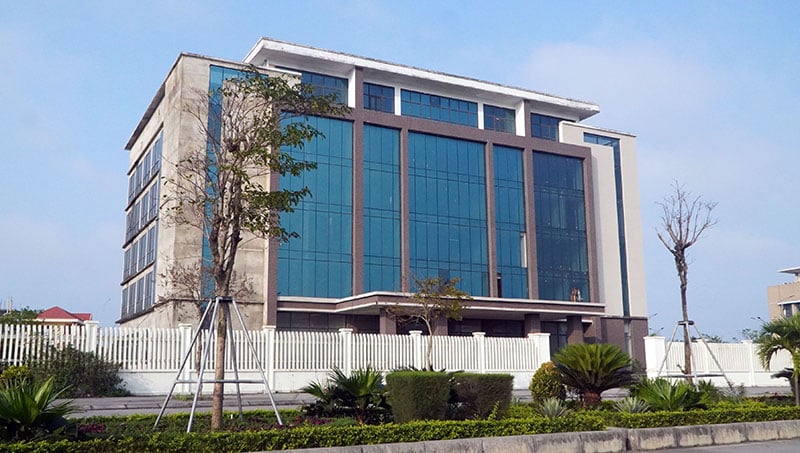



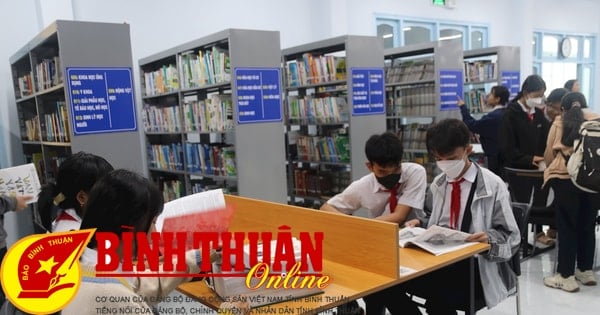









Comment (0)